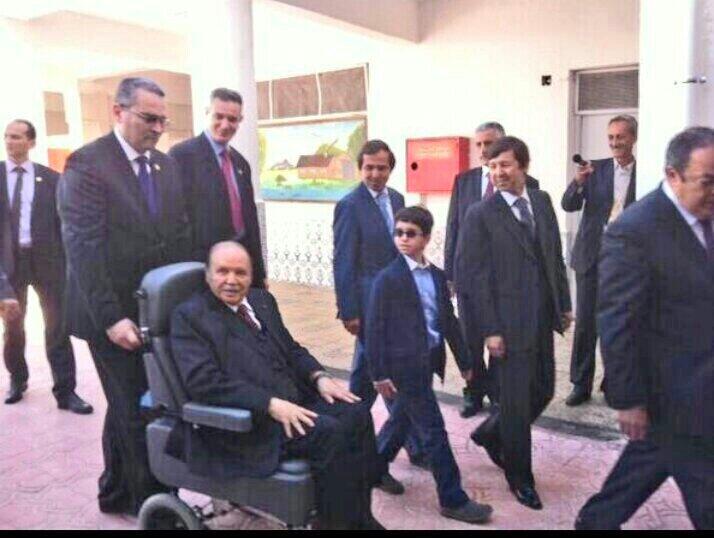 |
| Bouteflika (Photo AFP) |
Bouteflika is more or less the mascot of the ruling generals and FLN-bosses as it was during his period in office that the terrible civil war of the 1990s came to and end, a war that started after the rulers in January 1992 cancelled the second round of the first free elections in the Arab world because the islamist party FIS was poised to win.
The cancellation of the elections was the end of a three year period of ''Arab Spring'' in Algeria and led to a bloody civil war in which hundreds of thousands were slaughtered. Bouteflika, or rather the rulers he represented, were credited for finishing this nightmare. Lateron in 2011, when the ''Arab Spring'' caused unrest in the other Arab countries, Bouteflika c.s. won credit for containing the unrest when it spread to Algeria in January 2011 by raising wages, lifting a 19-year state of emergency and offering some other modest reforms.
By pushing forward Bouteflika for a fourth term Algeria's rulers now signal that above all they want continuity and are wary of changes or reforms. It is expected that they will use whatever means to make sure that their candidate will win and that is one of the reasons that both Amnesty International and Human Rights Watch have voiced concerns about restrictions of the freedom of speech ahead of the vote, while Reporters Without Borders on Wednesday highlighted the difficulties faced by journalists trying to cover the elections.
There was also sporadic election-related violence in the weeks leading up to the polls. Youth protest group Barakat (Enough), a rare public expression of the anger and frustration felt by some Algerians towards political authoritarianism, was founded just two months ago specifically to oppose the president's bid for a
fourth term. Police violently dispersed a demonstration the group organised in Algiers on Wednesday and arrested some of its members.
Bouteflika is not the only candidate, there are six in total, but the president's main rival, former prime minister Ali Benflis who ran against Bouteflika in 2004 but lost heavily, said fraud will be his "main adversary".Benflis warned that he would "not keep quiet" if the election is stolen. Many observers think, however, that lack of interest may be another phenomenon of these elections, as most Algerians are sure that whoever wins will not make a difference in the foreseeable future in Algeria.
 Bouteflika enters the polling station
Bouteflika enters the polling station

.jpg)
.jpg)


No comments:
Post a Comment